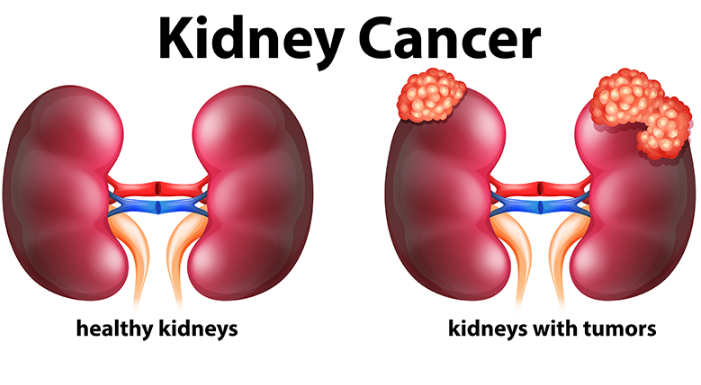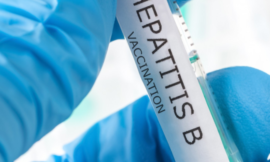Kidney cancer is a type of cancer that starts in the kidney. Cancer starts when cells in the body begin to grow out of control. Your kidneys are two bean-shaped organs, each about the size of your fist. They’re located behind your abdominal organs, with one kidney on each side of your spine.
In adults, renal cell carcinoma is the most common type of kidney cancer. Other less common types of kidney cancer can occur. Young children are more likely to develop a kind of kidney cancer called Wilms’ tumor.
Causes of Kidney Cancer
Doctors don’t know the causes of kidney cancer. But certain factors appear to increase the risk of getting kidney cancer. For example, kidney cancer occurs most often in people older than age 40. These are some other risk factors for kidney cancer.
Smoking: If you smoke cigarettes, your risk for kidney cancer is twice that of nonsmokers.
Being male: Men are about twice as likely as women to get kidney cancer.
Being Obese: Extra weight may cause changes to hormones that increase your risk.
Using certain pain medications for a long time: This includes over-the-counter drugs in addition to prescription drugs.
Having advanced Kidney disease: being on long-term dialysis, a treatment for people with kidney that have stopped working.
Having certain genetic conditions: such as von Hippel-Lindau disease or inherited papillary renal cell carcinoma.
Having a family history of kidney cancer: The risk is especially high in siblings.
Being exposed to certain chemicals: such as asbestos, cadmium, benzene, organic solvents, or certain herbicides.
Having high blood pressure: Doctors don’t know whether high blood pressure or medication used to treat it is the source of the increased risk.
Having lymphoma: For an unknown reason , there is an increased risk of kidney cancer in patients with lymphoma.
Symptoms of Kidney Cancer

Kidney cancer usually doesn’t have signs or symptoms in its early stages. In time, signs and symptoms may develop, including:
- Blood in your urine, which may appear pink, red or cola colored
- Pain in your back or side that doesn’t go away
- Loss of appetite
- Unexplained weight loss
- Tiredness
- Fever that lasts for weeks and isn’t caused by a cold or other infection
- Swelling in your ankles or legs.
Kidney cancer that spreads to other parts of your body may cause other symptoms, such as:
- Shortness of breath
- Bone pain
- Coughing up blood
Make an appointment with your doctor if you have any persistent signs or symptoms that worry you.
Prevention
Taking steps to improve your health may help reduce your risk of kidney cancer. To reduce your risk, try to:
- Quit smoking. If you smoke, quit. Many options for quitting exist, including support programs, medications and nicotine replacement products. Tell your doctor you want to quit, and discuss your options together.
- Maintain a healthy weight. Work to maintain a healthy weight. If you’re overweight or obese, reduce the number of calories you consume each day and try to be physically active most days of the week. Ask your doctor about other healthy strategies to help you lose weight.
- Control high blood pressure. Ask your doctor to check your blood pressure at your next appointment. If your blood pressure is high, you can discuss options for lowering your numbers. Lifestyle measures such as exercise, weight loss and diet changes can help. Some people may need to add medications to lower their blood pressure. Discuss your options with your doctor.
Unlike with many other cancers, your doctor may be pretty certain about a diagnosis of kidney cancer without a biopsy Sometimes, a biopsy will be done to confirm the diagnosis. A doctor may use a needle biopsy to remove a sample of tissue, which is then examined under a microscope for cancer cells. The biopsy may also tell the grade of the cancer — how aggressive the cancer is likely to be. Often the surgeon will simply remove the entire tumor and then have a sample of tissue examined.
Once your doctor makes a diagnosis of kidney cancer, you may need other tests to tell if the cancer has spread within your kidney, to the other kidney, or to other parts of your body. When cancer spreads from the place where it first started, it has metastasized. You might need a CT scan or MRI. A chest X-ray can show whether the cancer has spread to your lungs. A bone scan can see if it is in your bones.





